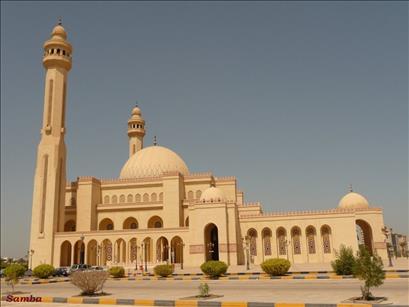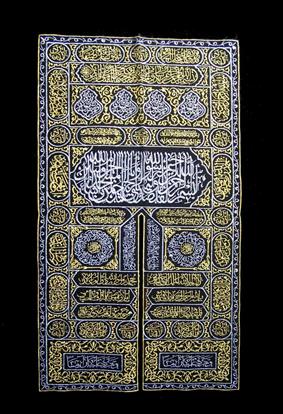The Muslim world marks Eid-Al Fitr (denoting the end of the Holy Month of Ramadan) and Eid-Al Adha, commemorating the Hajj season, with three-days of festivities, declared as public holidays. If Eid festivities fall on a Friday (which is the weekly day of rest), the following full working day is also declared as public holiday.
Eid Al Adha occurs on the tenth day of the Islamic Month of Dhul-Hijjah (approximately 70 days after the end of the Holy Month of Ramadan). More than two million Muslims converge near the Holy Shrines of Mecca and Medina in Saudi Arabia, to perform Hajj, a sacred duty for all those subscribing to the religion.
I have had the pleasure and privilege of living and working in the Kingdom of Bahrain for a length of time, during which I learnt the values of Islam and the love and affection with which Muslims treat the members of other religions and faiths.
Eid Al Fitr and Eid Al Adha were special occasions that would highlight those fraternal feelings with Hindus, Christians, Jews and others joining Muslims in festivities held at Mosques, Parks and Gardens, club and at homes.
Warm greetings
One of the most exciting aspects of Eid is greeting those who would have abstained from eating and drinking during daylight hours throughout the Holy Month of Ramadan.
I would be among thousands of people who lined up at the Royal Palace in the serene settings of the western suburb of Riffa to greet the King (then called the Amir) and members of the Royal Family on the two occasions during the Islamic year
“It is so nice of you to have come in so early (around 630 am) to greet me. This is the true spirit of Islam and our people – everyone is equal and there are no differences between nationalities,” the King would say.
 The spirit of oneness would also be experienced during Diwali and Christmas when Arab ministers, businesspersons and others would host parties in their homes or hotels, at which hundreds of people, including the rich and the ordinary, would be seen exchanging greetings, sharing food and sweets and enjoying the togetherness that these events brought with them.
The spirit of oneness would also be experienced during Diwali and Christmas when Arab ministers, businesspersons and others would host parties in their homes or hotels, at which hundreds of people, including the rich and the ordinary, would be seen exchanging greetings, sharing food and sweets and enjoying the togetherness that these events brought with them.
I have lived and worked for organisations in other parts of the world but I believe that Bahrain and Bahrainis symbolised what Islam wanted people to be.
The great religion preaches people to be honest, simple and pious; perform their mission in life: strengthen the fraternal bond, understanding and goodwill; and work towards what the Holy Quran and Prophet Mohammed (Peace Be Upon Him) directed every human being to do: foster love, peace and harmony.
Understanding Islam
My life and career in the Arab world helped me to understand the true spirit of Islam.
While the teachings of the Holy Quran directed Muslims to believe in one God, namely the Almighty Allah and bow to Him as the Most Gracious, the Most Benevolent and the Merciful, there was never a mention of condemnation of people of other faiths or the faiths themselves.
There is no plurality in Islam – there is but one God and the Prophet, his Messenger.
I believe the Singularity denoted the singular purpose of being born as a human.
Such Singularity forms the essence of every religion.
The expression, ‘Oh My God!’ as an exclamation, as fear or even as surprise, symbolises that Singularity.
Such ‘Oneness’ also forms the essence of Hinduism, although Hindus perceive God as God or Gods and as Goddesses.
Oneness of God
 In giving shape, form and colour, Hindus venerate the Supreme Being with a ‘vision.’
In giving shape, form and colour, Hindus venerate the Supreme Being with a ‘vision.’
But the essence of Hinduism is the same: God in one and is shapeless.
Islam does not prescribe (it actually proscribes) idol worship because it defeats the core of the Islamic belief that God has no shape or form.
Do Muslims worship the Kabah as they circumambulate in the Holy City of Makkah?
I have heard experts in Islam telling me that Muslims do not worship the Kabah (they worship only the Almighty Allah). While going around the Kabah, they chant, ‘La Illa Ha Ill-lal-ah’ (There is nothing worthy of worship except Allah).
The Kabah
Mecca (Makkah) is the centre of the globe, which is why all Muslims face towards the Holy City during prayers, irrespective of the country, city or the place from which they offer their submission to the Almighty Allah.
“The Kabah is for unifying Muslims at prayer. It would be chaotic if they prayed in any direction they chose,” an expert said.
As mentioned repeatedly in the articles appearing in this Special Report, the purpose of the Holy Month of Ramadan is to instill in people qualities of loving and caring and the spirit of sacrifice (abstinence from food and drink from dawn to dusk, abstinence from sex throughout the month and offering alms to the poor).
Ramadan is also a period for introspection – to examine one’s inner self, seek orderliness in one’s life, and enliven conscience and compassion.
Those who do not follow the teachings of the Holy Quran are not true Muslims.






